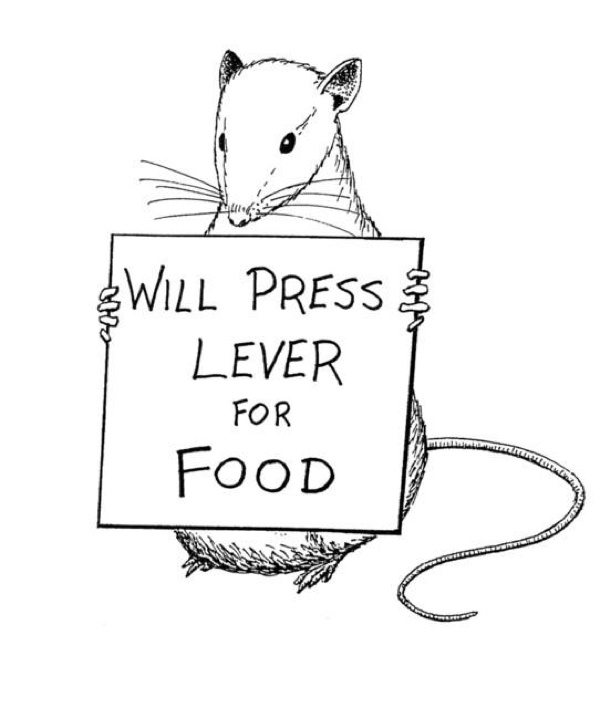 History
History  History
History  Movies and TV
Movies and TV 10 Movie Adaptations That Ruined Everything for Some Fans
 History
History 10 Dirty Government Secrets Revealed by Declassified Files
 Weird Stuff
Weird Stuff 10 Wacky Conspiracy Theories You Will Need to Sit Down For
 Movies and TV
Movies and TV 10 Weird Ways That TV Shows Were Censored
 Our World
Our World 10 Places with Geological Features That Shouldn’t Exist
 Crime
Crime 10 Dark Details of the “Bodies in the Barrels” Murders
 Animals
Animals The Animal Kingdom’s 10 Greatest Dance Moves
 Movies and TV
Movies and TV 10 Box Office Bombs That We Should Have Predicted in 2025
 History
History 10 Extreme Laws That Tried to Engineer Society
 History
History 10 Wars That Sound Made Up (but Absolutely Happened)
 Movies and TV
Movies and TV 10 Movie Adaptations That Ruined Everything for Some Fans
 History
History 10 Dirty Government Secrets Revealed by Declassified Files
Who's Behind Listverse?

Jamie Frater
Head Editor
Jamie founded Listverse due to an insatiable desire to share fascinating, obscure, and bizarre facts. He has been a guest speaker on numerous national radio and television stations and is a five time published author.
More About Us Weird Stuff
Weird Stuff 10 Wacky Conspiracy Theories You Will Need to Sit Down For
 Movies and TV
Movies and TV 10 Weird Ways That TV Shows Were Censored
 Our World
Our World 10 Places with Geological Features That Shouldn’t Exist
 Crime
Crime 10 Dark Details of the “Bodies in the Barrels” Murders
 Animals
Animals The Animal Kingdom’s 10 Greatest Dance Moves
 Movies and TV
Movies and TV 10 Box Office Bombs That We Should Have Predicted in 2025
 History
History 10 Extreme Laws That Tried to Engineer Society
10 Common Misconceptions About Psychology
Psychology is an incredibly popular topic in popular culture—but it has actually caused quite a few problems for psychologists, because popular media is extremely good at getting things wrong. The problem is so great that many teachers find that incoming psychology majors have a very poor understanding of the subject and hold many ridiculous misconceptions.
Some try to fight this problem by addressing some of the more common errors at the beginning of the term. Listed below are ten of the most popular misconceptions about how psychology works, as well as an explanation as to why they are not true.

It’s hard to turn on a television these days without seeing a crime drama in progress—and in most of these dramas, psychological profiling of criminals has become a staple technique for catching serial killers and other violent criminals. But contrary to popular belief, profiling of criminals actually doesn’t work very well.
Some say that it is more of an art than a science, and many experts believe that there isn’t enough evidence to support it—and that much more testing needs to be carried out. To make matters worse, most of these criminal profiles are actually based on anecdotes rather than actual science, and hardly any real objective testing has ever been done to test the accuracy of these profiles. The crime dramas do have one thing right though: despite all the evidence that criminal profiles are hogwash, the FBI has actually expanded its use of them.

Many people have a common belief that reinforcing behaviors is most effective if you reinforce the behavior every time it occurs. An example of this would be to give a child a cookie every time they go to bed on time. But this is actually not a very effective method of teaching someone a behavior; intermittent reinforcement is much more effective.
Intermittent reinforcement has been proven to be much more effective at preventing the extinction of a particular behavior, which can occur if it has not been reinforced for a while. This means that if you only occasionally reward someone when teaching them to do something, and then stop all reinforcement, they will retain the behavior longer than if you had rewarded them every time.

Pleading insanity has become a staple of movies: the defendant tries to act really wacky and eccentric to convince the jury that he is a nutcase, in an attempt to avoid prison and go to a loony bin instead. Apart from the fact that a psychiatric hospital is really not much more fun than a prison, the truth is that this defense is rarely tried and almost never works. Not only is it very rare, but three US states have actually banned the insanity defense altogether.
To further contradict the popular movie trope, the burden of proof regarding the insanity defense is much different from the popular conception. Acting crazy in the courtroom is not sufficient, you have to prove that you were crazy during the time that you did whatever you were hauled into the courtroom for. A person can be found to be not competent to stand trial, but that’s a different standard and the bar for it is very low. Basically, the defendant just needs to understand what is going on around him to qualify as sane.

The lie detector, known technically as a polygraph, is popular in cinema for its ability to find out who is or isn’t telling the truth. But in reality the polygraph is extremely inaccurate, and as evidence it is not admissible in a court of law unless this is agreed upon by both parties.
The polygraph assesses things such as heart rate and breathing—but even if it used properly, it is still only partially effective. The questioner generally uses control questions and stress to get a good idea of truthfulness, but it is not a very precise tool if you what you need is to be certain. Some scientists have created a new fMRI lie detection machine, but despite their assurances as to its worth, no judges will allow it as admissible evidence in a courtroom.
Another important thing to note is that these machines operate under the assumption that the person who is lying will feel stress; but it seems uncertain whether a compulsive liar would have much of a stress response to saying things they know to be untrue.

Tourette’s is an incredibly misunderstood disorder—famously depicted on shows such as South Park, in which Eric Cartman uses it to get away with swearing and saying terrible things about Jewish people because he is a horrible fictional person. Tourette’s is a neurological disorder, and doctors have been able to deduce that it is passed on genetically—but apart from that, they are unsure what causes it to manifest itself.
The biggest misconception about the disease is that it mainly involves shouting out vulgarities uncontrollably, but this is not true. Tourette’s can indeed involve involuntary speech—though not always swearing—but it more commonly features various kinds of involuntary bodily tics. Someone with Tourette’s might twitch uncontrollably, or shake for no reason.

This is an incredibly popular belief, and it has become so pervasive that it is basically accepted as something that happens to men when they reach middle age. But according to many psychologists, it isn’t really accurate at all.
Not only do researchers say that there really isn’t any specific point in your life that you are most likely to have a crisis; some say that middle age may be the happiest time of life for most people. According to experts, the truth is that at mid-life, most people know who they want to be and are able to navigate life to the fullest—the biggest crisis actually happening when people are young, and still full of relative confusion and insecurity.

Another popular belief is the idea that blind people can visualize someone’s face by touching it to get an idea of what the general shape is. While there is some degree of truth to this for those who were not blind from birth, those who have never seen anything are completely incapable of doing this.
Interestingly, however, people do find ways to compensate. Blind people have been shown through studies to use the visual part of their brain to increase the strength of their auditory and tactile senses. Other studies have been carried out which examine the ability of the congenitally blind to dream in images. Critiques of these studies have come to the conclusion that while blind people do dream, they are only able to process things in their dreams that they are able to process while they are awake. For this reason, they strongly recommend that visual imagery should not be used to describe the way that blind people dream.

Sometimes there are days when bizarre stuff seems to happen; someone makes the comment that it must be a full moon today, and everyone nods gravely as if this were foretold by the sages. Nurses have claimed that on days with full moons, there are more patients and things are more chaotic; police claim that full moons make people more aggressive.
The truth is that all of these claims and all of the popular superstitions are complete bull hockey. Studies have shown that there are no more psychiatric visits, hospital visits, or problems with surgical procedures or epileptic attacks on the night of a full moon than on any other night.
Apart from a pair of conflicting studies with poor controls, only one study has ever shown any possible link between the full moon and anything else. A study in Colorado of over ten thousand cases found that pets were more likely to be injured during a full moon. But other things could account for this: some have suggested that it might be because pet owners are more likely to take their pet out on a brilliantly lit night.

This is another myth that really doesn’t die, although there are certain degrees of truth to it. There are even songs about this, and the idea persists in countless movies and TV shows. But the evidence goes in quite the opposite direction. Studies have found that people claim to want someone different—perhaps because they watch too many movies—but actually tend to be more attracted to those who are a lot like them.
Researchers also found that those who were opposites rarely ended up in lasting relationships, most likely due to a lack of real chemistry—so it seems that opposites don’t attract for very long. According to experts, the question is not really about the other person being opposite, or even being like you. One psychologist explains that successful dating is more about finding someone that compliments your personality, making it much more like the pieces of a jigsaw puzzle fitting together rather than a north and south magnet.

Sigmund Freud is famous the world over for his theories; unfortunately, most people know him for his wild theories about sex, and for asking people about their dreams. Freud and his theories are deeply misunderstood; he had many wild theories about sex, mainly in regards to unconscious sexual feelings in very small children who had hardly even learned to reason.
These theories are not really considered to be accurate today by psychologists, nor is hypnotherapy a very popular or accepted method for treating people. But Freud’s method of talking to people in order to cure them of their mental issues, and his work concerning the subconscious, the Id, and the Ego, were groundbreaking—and laid the foundation for much of what is understood about psychology today.
You can follow Gregory Myers on twitter








